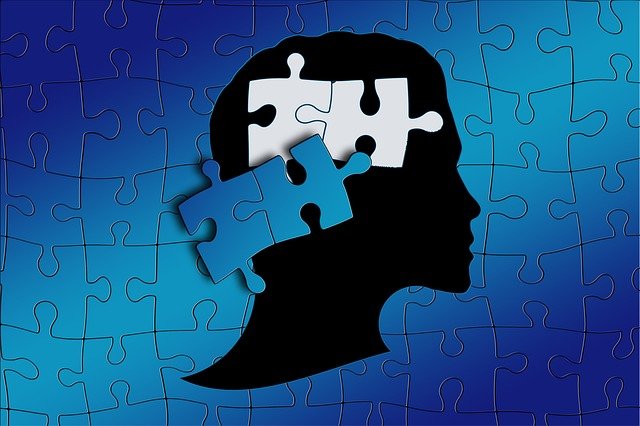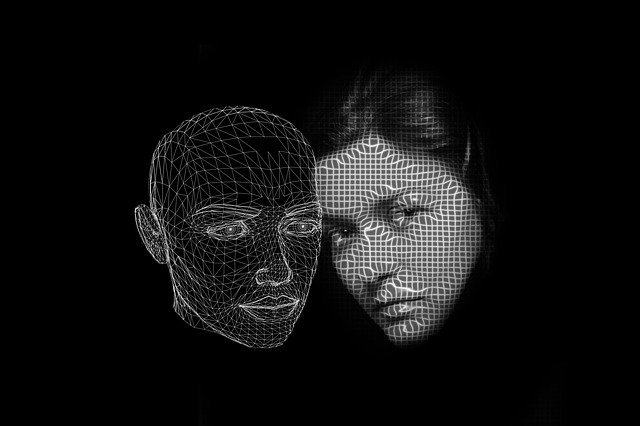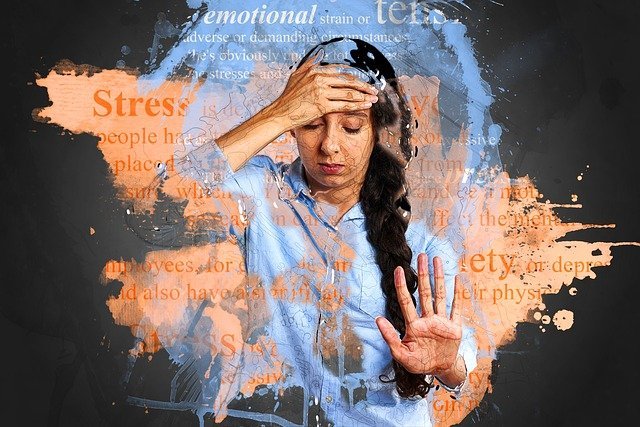Empatía y el trastorno Deprivación Afectiva de Casandra (CADD) [ES|EN] // Empathy and Casandra's Affective Deprivation Disorder

Imagen de Gerd Altmann en Pixabay

DeepL Translator (free version)
(English version below)
Hola amigos de Hive. Estoy muy emocionada al escribir este post, porque recientemente leí un artículo que fue un total descubrimiento para mí y que le da sentido a algunas cosas de manera bastante directa. Aunque tiene que ver con la empatía, este artículo no se trata directamente de ella, sino más bien de una consecuencia que experimentan algunas personas que viven con alguna otra que tienen muy baja empatía.
En este descubrimiento también me topé con algunos términos que nunca antes había escuchado y que han sido totalmente nuevos para mí, de los cuales también te hablaré. Pero, ¿cómo llegué al descubrimiento del cual aun no te he hablado? Bueno, estuve leyendo un artículo en línea sobre un tipo de adicción en particular, y sin imaginármelo el artículo menciona que algunas personas buscando ayuda para superar el problema de esa adicción fueron diagnosticadas como Asperger en su edad adulta. Nunca me hubiese imagine que pudiera haber una relación entre ellas, eso también fue algo que no sabía.

Imagen de Gerd Altmann en Pixabay
Eso me llevó a querer saber un poco más y la lectura me llevó a caminos un poco más lejanos de mi punto de partida. Llegué entonces a una página, buscando información sobre cómo alguien adulto puede saber si es Asperger. Esa búsqueda me llevó a una especie de test en esa página que me ha resultado demasiado interesante. Esta página la utilizaré como fuente para explicarles entonces, cual es este trastorno relacionado con la empatía, lo que le da el título a esta publicación. La página en cuestión es Espectroautista.info. Así que si por alguna razón te interesa conocer un poco más sobre el tema y mucha más informaciones relacionada, te invito a que navegues por el sitio.
¿Por qué es importante la empatía?

Conocí esta palabra y su significado mientras era muy joven, en la edad de la adolescencia. En ese entonces, para mí era como una nueva y misteriosa palabra que nunca había escuchado y al saber su significado me sentí identificada con ella, así que llegué a creer que yo era una persona muy empática. Incluso, más de lo debido y con el tiempo he tenido que aprender a controlar esta emoción por mi propio bien. Pues bien, puedo describir la empatía como la capacidad de una persona de ponerse en el lugar de otra y de esa manera entender cómo se siente o como le afectan ciertas y determinadas situaciones.
En los últimos tiempos veo como de forma universal se ha descrito a la empatía como la capacidad de “ponerse en los zapatos del otro”. Me parece que esto hace posible que todos podamos entender de qué se trata. Sin duda alguna la opinión o la visión que cada uno pueda tener con respecto a algo o a alguien cambiarían drásticamente si en vez de ver desde nuestros ojos nos ponemos en los “zapatos” de la otra persona y entender como eso la afecta o la hace sentir. Quizás esto puede hacer que nuestro punto de vista cambie drásticamente como si de un giro de 180 grados se tratase.

Imagen de Kathrin Pienaar en Pixabay
Creo que la empatía nos ayuda a ser bondadosos, pacientes, perdonadores e incluso más tolerantes. Entonces, ¿es importante la empatía? Pues claro que sí. Pero es importante saber que, muchos son empáticos de manera natural, uso más que otros y unos mucho menos. Sin embargo, el realizar ese sencillo ejercicio voluntario y consciente, hace posible que podados manifestar en alguna medida esta importante cualidad de la empatía. Si no lograste captarlo, pues este ejercicio es visualizarse poniéndose en los zapatos el otro, ¿cómo me sentiría si fuera yo?, si yo estuviera pasando por eso ¿qué me gustara que otros hicieran o no hicieran por mí?, si yo estuviera en su lugar y alguien me dice algo como esto ¿cómo me sentiría yo? Pues estas preguntas, a modo de autoexamen, nos pueden ayudar a calzar esos otros zapatos.
Pero ahora lean una cosa, aunque es cierto que hay diferentes niveles de empatía, hay algunas condiciones que caracterizan a los individuos que las padecen por ser muy poco empáticos. Una de estas condiciones es el Asperger.
La vida junto a un adulto Asperger

Como ya les mencioné, en este post utilizaré a la página de Espectroautista.info como fuente, y un poco más delante te dejaré el enlace directo al artículo que específicamente trata el punto. La condición de Asperger se encuentra dentro del Espectro Autista, sin embargo una gran mayoría de las personas que lo padecen son de alto desempeño. Es por eso que muchos llegan a tener una vida relativamente normal sin ser diagnosticados, pero algunos de estos por alguna razón en su edad adulta reciben un diagnostico inesperado u otras llegan a autodiagnosticarse ellas misma, encontrando entonces la explicación a muchas situaciones difíciles de su vida.

Imagen de Gerd Altmann en Pixabay
Así como muchos adultos Asperger llevan una vida independiente y productiva, muchos llegan a casarse. Sin embargo, la verdad es que la mayoría de ellos tristemente termina en divorcio. Una de las posibles razones para ello, no sé si las más importante, porque no llegué hasta ese punto de investigación, es la poca empatía hacia su pareja. Aunque también muchos hijos con alguno de los padres con esta condición sufren los efectos de vivir con una persona con poca o nada empatía. Sin embargo, en este artículo quiero enfocarme más a las relaciones de pareja.
Trastorno de Deprivación Afectiva de Casandra (CADD)

|
EL CADD (por las siglas en ingles de Casandra's Affective Deprivation Disorder) es un término que se utiliza para agrupar aquellos síntomas comunes en las personas que conviven con una parejas con baja empatía. Como ya mencionamos, las personas con la condición de Asperger, entran dentro de esta categoría, aunque también pudiesen cursar con alguna otra diferente. Para mí, fue la primera vez que escuchaba o más bien leía sobre este trastorno. Pero también era la primera vez que escuchaba el término DEPRIVACIÓN.
Al principio pensé que estaba mal escribo, pero no era así. Así que esa fue la segunda cosa desconocida que aparecía ante mis ojos en esa ocasión, pero no fue la última. Luego entró un término más, la ALEXITIMIA, ¿has escuchado hablar sobre ella?

Imagen de Pete Linforth en Pixabay
Pues como lo dice la información referida, los sujetos desencadenantes de este trastorno no solo padecen de “bajos niveles de empatía”, sino también de “niveles altos de alexitimia”. Pero, ahora bien, sé que te estarás preguntando, ¿cuáles son esos síntomas que engloba el CADD?
Se me olvidaba comentarte que este término fue acuñado por Maxine Aston en su experiencia como consejera y terapeuta de parejas donde uno de ellos es diagnosticado dentro del Espectro Autista. Muy bien, ahora si vamos con algunos de los síntomas de este trastorno:
• Baja autoestima.
• Depresión.
• Ansiedad.
• Somnolencia.
• Disminución de la libido.
• Alteraciones del estado de ánimo.
• Disminución del sistema inmunitario.
Relación entre la baja autoestima y los síntomas del CADD

Si hasta el momento te ha parecido interesante este post, te invito a que puedas leer completa la fuente. Es muy interesante, porque esta terapeuta encontró similitudes entre los síntomas de las personas ocasionados por la privación del sol con los de aquellas personas que viven con una pareja o un padre Asperger. Sin embargo obviamente el caso más crudo es el de los que sufren de CADD porque sus síntomas son causados por la convivencia con otro ser humano que normalmente aman.
Para hacer más crítico el asunto, si esta persona no ha sido diagnosticada, entonces se pudiera pensar que sus acciones son realizadas con intención o a conciencia. Pero aun no hemos dilucidado el titulo de este subtema, ¿Cuál es la relación entre la baja empatía y estos síntomas?
“La reciprocidad emocional, el amor y el sentimiento de pertenencia son esenciales para los seres humanos. Si estas necesidades no están siendo atendidas y no se comprende la razón, entonces pueden verse afectadas tanto la salud mental como la física”.
Esta es una afirmación directa y cruda, y para mi entender es la revelación de una gran verdad que afecta a una gran cantidad de parejas, especialmente a mujeres. Según leí en algún momento, es más alto el porcentaje de varones Asperger que de hembras que padecen esta condición.
Pues bien, la persona que vive inmersa en esta relación, al no sentirse comprendida y amada comienza a padecer “sentimientos de confusión, soledad y desesperación los que dan lugar al nombre de Casandra”.

Imagen de Karen Warfel en Pixabay
Sin embargo, aunque la condición de Asperger no se cura, el CADD “es una afección secundaria”, que surge como consecuencia de la convivencia con una persona con esta condición. Es por eso que diagnosticado y aceptado el diagnostico, es posible recuperarse de estos síntomas, si se trabaja en conjunto para encontrar mejores vías de comunicación y entendimiento para que ambos puedan dejar de culparse mutuamente por los problemas de la relación y encontrar la debida satisfacción emocional.
ENGLISH VERSION

Imagen de Gerd Altmann en Pixabay

Hello Hive friends. I am very excited to write this post, because I recently read an article that was a total eye opener for me and that makes sense of some things quite directly. Although it has to do with empathy, this article is not directly about it, but rather a consequence experienced by some people living with some other who have very low empathy.
In this discovery I also came across some terms that I had never heard before and that have been totally new to me, which I will also tell you about. But how did I come to the discovery I haven't told you about yet? Well, I was reading an article online about a particular type of addiction, and unbeknownst to me the article mentions that some people seeking help to overcome the problem of that addiction were diagnosed as Asperger's in their adulthood. I would never have imagined that there could be a relationship between them, that was also something I didn't know.

Imagen de Gerd Altmann en Pixabay
That led me to want to know a little more and reading led me to paths a little further away from my starting point. I then came to a page, searching for information on how an adult might know if they are Asperger's. That search led me to a kind of test on that page that I have found too interesting. This page I will use as a source to explain to you then, what is this disorder related to empathy, which gives the title to this post. The page in question is Espectroautista.info. So if for some reason you are interested in learning a little more about the subject and much more related information, I invite you to browse the site.
Why is empathy important?

I came to know this word and its meaning while I was very young, in my teenage years. At that time, for me it was like a new and mysterious word that I had never heard and when I knew its meaning I felt identified with it, so I came to believe that I was a very empathic person. Even more than I should be, and over time I have had to learn to control this emotion for my own good. Well, I can describe empathy as the ability of a person to put himself in the place of another and thus understand how he feels or how certain situations affect him.
In recent times I see how empathy has been universally described as the ability to "put oneself in the shoes of another ". It seems to me that this makes it possible for all of us to understand what it is all about. Undoubtedly the opinion or vision that each one of us may have regarding something or someone would change drastically if instead of seeing from our own eyes we put ourselves in the other person's "shoes" and understand how that affects them or makes them feel. Perhaps this can make our point of view change drastically as if it were a 180-degree turn.

Imagen de Kathrin Pienaar en Pixabay
I believe empathy helps us to be kind, patient, forgiving and even more tolerant. So, is empathy important? Of course it is. But it is important to know that many people are naturally empathetic, I use more than others and some much less. However, doing this simple voluntary and conscious exercise, makes it possible for us to manifest to some extent this important quality of empathy. If you did not manage to grasp it, this exercise is to visualize yourself putting yourself in the other person's shoes, how would I feel if it were me, if I were going through this, what would I like others to do or not do for me, if I were in their place and someone says something like this to me, how would I feel? Well, these questions, by way of self-examination, can help us to put on those other shoes.
But now read one thing, although it is true that there are different levels of empathy, there are some conditions that characterize individuals who suffer from them for being very little empathic. One of these conditions is Asperger's disease.
Life with an Asperger's Adult

As I mentioned, in this post I will use the Espectroautista.info page as a source, and a little further on I will leave you the direct link to the article that specifically addresses the point. Asperger's condition is on the Autism Spectrum, however a large majority of people with Asperger's are high functioning. That is why many go on to lead relatively normal lives without being diagnosed, but some of these for some reason in adulthood receive an unexpected diagnosis or others come to self-diagnose themselves, finding then the explanation for many difficult situations in their lives.

Imagen de Gerd Altmann en Pixabay
Just as many Asperger's adults lead independent and productive lives, many go on to marry. However, the truth is that most of them sadly end in divorce. One of the possible reasons for this, I do not know if it is the most important, because I did not get to that point of research, is the lack of empathy towards their partner. Although also many children with a parent with this condition suffer the effects of living with a person with little or no empathy. However, in this article I want to focus more on couple relationships.
Cassandra Affective Deprivation Disorder (CADD)

|
CADD (Casandra's Aaffective Ddeprivation Disorder) is a term used to group together those symptoms common in people who live with a partner with low empathy. As already mentioned, people with Asperger's condition fall into this category, although they may also have a different one. For me, it was the first time I had heard or rather read about this disorder. But it was also the first time I heard the term DEPRIVATION.
At first I thought it was misspelled, but it was not. So that was the second unknown thing that appeared before my eyes on that occasion, but it was not the last. Then one more term came in, ALEXITIMIA, have you heard about it?

Imagen de Pete Linforth en Pixabay
Well, as the referred information says, the subjects triggered by this disorder not only suffer from "low levels of empathy ", but also from "high levels of alexithymia ". But, now, I know you are wondering, what are those symptoms that CADD encompasses?
I forgot to tell you that this term was coined by Maxine Aston in her experience as a counselor and therapist of couples where one of them is diagnosed within the Autistic Spectrum. Okay, now let's go to some of the symptoms of this disorder:
- Low self-esteem.
- Depression.
- Anxiety.
- Drowsiness.
- Decreased libido.
- mood alterations
- decreased immune system.
Relationship between low self-esteem and CADD symptoms

If you have found this post interesting so far, I invite you to read the complete source. It is very interesting, because this therapist found similarities between the symptoms of people caused by sun deprivation with those of people living with an Asperger's partner or parent. However obviously the crudest case is that of those suffering from CADD because their symptoms are caused by living with another human being they normally love.
To make the matter more critical, if this person has not been diagnosed, then one would think that their actions are done with intention or conscience. But we have not yet elucidated the title of this subtopic, what is the relationship between low empathy and these symptoms?
Emotional reciprocity, love and a sense of belonging are essential for human beings. If these needs are not being met and the reason is not understood, then both mental and physical health can be affected."
This is a direct and raw statement, and to my mind it is the revelation of a great truth that affects a great many couples, especially women. According to what I read at some point, a higher percentage of Asperger's males than females suffer from this condition.
Well, the person who lives immersed in this relationship, not feeling understood and loved begins to suffer "feelings of confusion, loneliness and despair which give rise to the name of Cassandra ".

Imagen de Karen Warfel en Pixabay
However, although the Asperger's condition cannot be cured, CADD "is a secondary condition ", which arises as a consequence of living with a person with this condition. That is why once the diagnosis is diagnosed and accepted, it is possible to recover from these symptoms, if you work together to find better ways of communication and understanding so that both can stop blaming each other for the problems of the relationship and find the proper emotional satisfaction.

CREDITS | CREDITOS
Nombre y Banner | Name and Banner: Diseñados por mí en Canva.com | Designed by me in Canva.com.
Separadores | Separators:
Felicidades @marbrym , este trabajo merece mis respeto y admiración, es un tema profundo e interesante a la vez. Pero logré leerlo por completo, cosa que no me pasa con mucha frecuencia, pues mi malestar en los ojos a veces me grita detenerme. Pero esta vez hice caso omiso. Gracias por tu ardua labor de investigación, también vi por primera vez muchos de los términos destacados. Buen trabajo💐🌺🎉😘🤗
Hola @gardenofcarmen, espero que estés bien 😊. Oye lamento tu problema de la vista, pero es un honor que a pesar de ello siguieras adelante. Es un tema muy interesante y pronto escribiré sobre otro trastorno que también encontré en mi lectura que me ayudó a entender algunas situaciones de personas cercanas. Agradecida nuevamente. ¡Que tengas una linda tarde!
Oh my! You have just described my wife and my relationship in perfect detail, without even knowing us! I was diagnosed with Asperger Syndrome as an "older adult", and my wife is neurotypical. In fact, it was due to my wife's insight that I was actually diagnosed as being on the Autism Spectrum. As for this CADD thing, I can't wait to let my wife know about it. She's asleep right now, but I will get her to take a look when she wakes up. I am sure that she will associate straight away with what you are saying here.
Autism Spectrum. As for this CADD thing, I can't wait to let my wife know about it. She's asleep right now, but I will get her to take a look when she wakes up. I am sure that she will associate straight away with what you are saying here.
I am very happy to read your words. This was a great discovery for me and I knew that many people would also benefit from knowing this. This post did not have as many views or much success, but it seems to me that it is valuable information. Did you already know about this CADD disorder?
No, I think neither my wife nor I had even heard of this CADD before. But from what you descibed here, and without even yet reading the source material you have offered here, I am sure that it is going to be very helpful to us both! I'm so happy about this, and I am sure that my wife will be too. Again, thanks so much for sharing this post!
Excellent I am very happy that you can find benefit from this information 😉
wow thank you very much @frittro for your generous gift of ecency 😉
I sometimes give a gift if I appreciate a post but am too late to
gift if I appreciate a post but am too late to  upvote it. However, I think with this post of yours, I would have both upvoted and gifted on it if I had've noticed it sooner! Hence the larger gift of
upvote it. However, I think with this post of yours, I would have both upvoted and gifted on it if I had've noticed it sooner! Hence the larger gift of  Ecency points this time. You deserve it!
Ecency points this time. You deserve it!
😱
That's great, it's a great privilege for me, but I also think it's excellent information. Again, thank you very much @frittro 🤝.
Definitivamente la ciencia aún tiene muchísimo trabajos por hacer. Cada vez son más los descubrimientos que necesitan respuestas y a su vez más difusión, un proceso largo.
Increíble, cada concepto sufre también transformaciones en cuanto a sus definiciones, es necesario hacer mucha investigación cómo esta para saber cómo y cuándo adecuar los términos.
Con la lectura minuciosa de tu contenido quedé enganchada, en esa misma medida en que realizaba lectura, tuve tiempo de declararme ignorante de tan valiosa información. Muchas gracias, seguiré ahondando en este tema.
Guau @belkisa758 te pasó lo mismo que a mí. Por eso estaba tan emocionada de compartir esta información. Hay muchas cosas que tienen nombre y apellido y que no lo sabemos y nos ayudan a entender muchos problemas a los que nos enfrentamos. En especial en la parte de las emociones y la salud mental hay terrenos inexplorados y otros desconocidos para nosotros, pero que ya han sido descubiertos y descritos por expertos. Información como esta puede ayudarnos personalmente o ser una herramienta para ayudar a otros que están en situaciones que parecen sin salida. Pero este tipo de información hace que aparezca una luz al final del túnel. Agradecida por tu valioso comentario 😅
O M G! This article is simply brilliant and exceptional.
I think you have a calling or gift on these areas of research. I also see you as someone with great Emphaty.
I have learnt alot of new things today
CADD. How this can greatly affect relationships and the best way to survive it.
Bravo my dear friend👏❤️
Hello dear friend @queenstarr . Your comment is of great value to me. Undoubtedly, knowing these things helps us precisely to be more empathetic and understand other people, even to be compassionate. How many relationships would not have been saved from knowing things as you are😔. Tell me about yourself,.how are you? 😃
Sí, querida hermana. Lo estoy haciendo muy bien. No se preocupe, voy a tomar tiempo especial para charlar que todo lo que ha sucedido en la discordia.
😂
Te quiero mucho❤️
Qué buena investigación. El enfoque que le has dado, y hasta la emoción que quieres destacar, a fin de encuadrarlo perfectamente en el nicho de la comunidad.👍
Sin duda, el que nos nutramos con material como esto nos ayudará a mejorar nuestra relación con los demás y poder entender, ayudar y acompañar a los demás. 💞
Un contenido de mucho valor @marbrym 🌸
Amén, me alegro mucho que al igual que yo lo consideres como un elemento de valor. Para mí fue un gran descubrimiento y sé que puede ayudar a muchos a enter su propio situación o entender y ayudar a otros.
https://twitter.com/MarbryMartinez/status/1519530728530354181
The rewards earned on this comment will go directly to the person sharing the post on Twitter as long as they are registered with @poshtoken. Sign up at https://hiveposh.com.